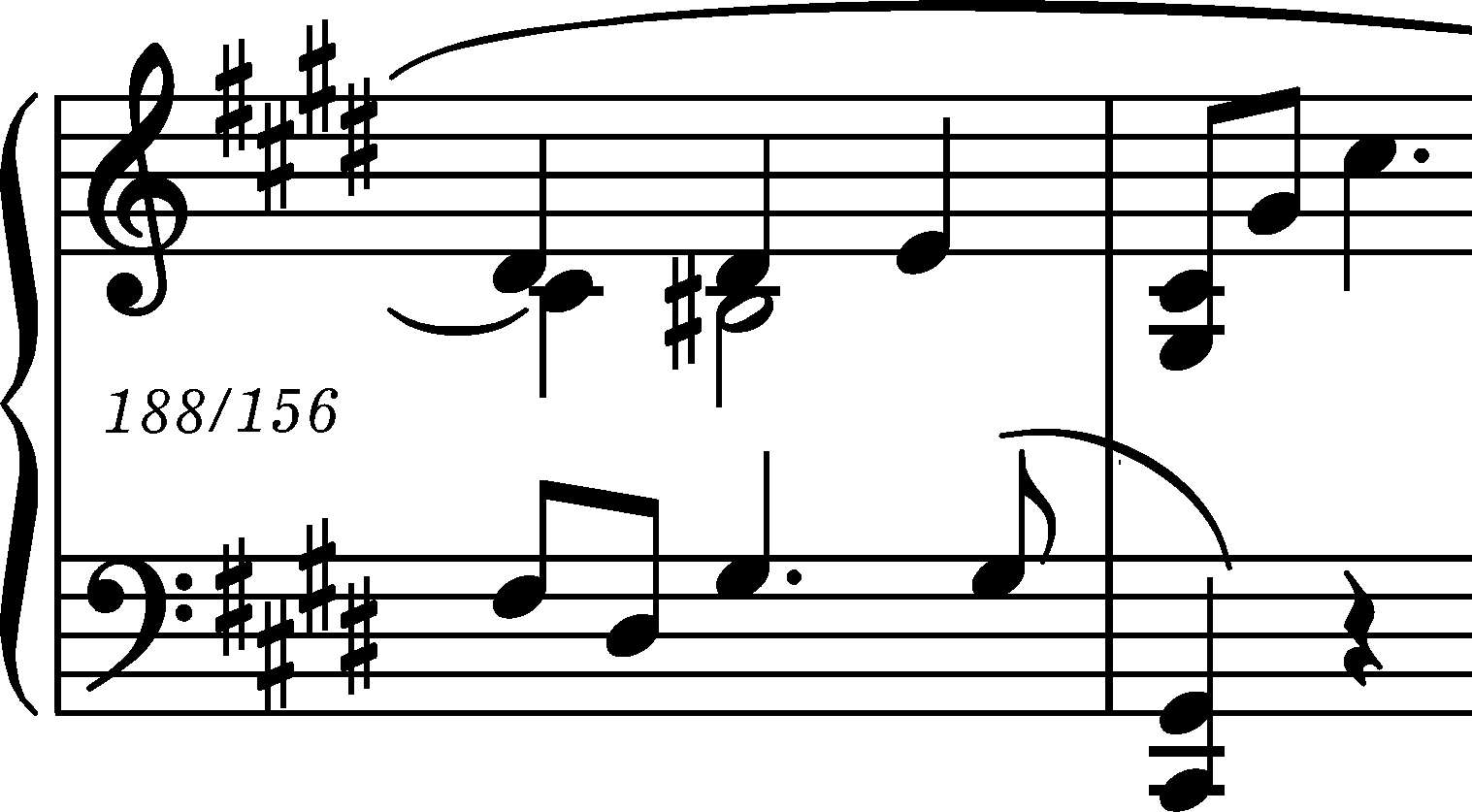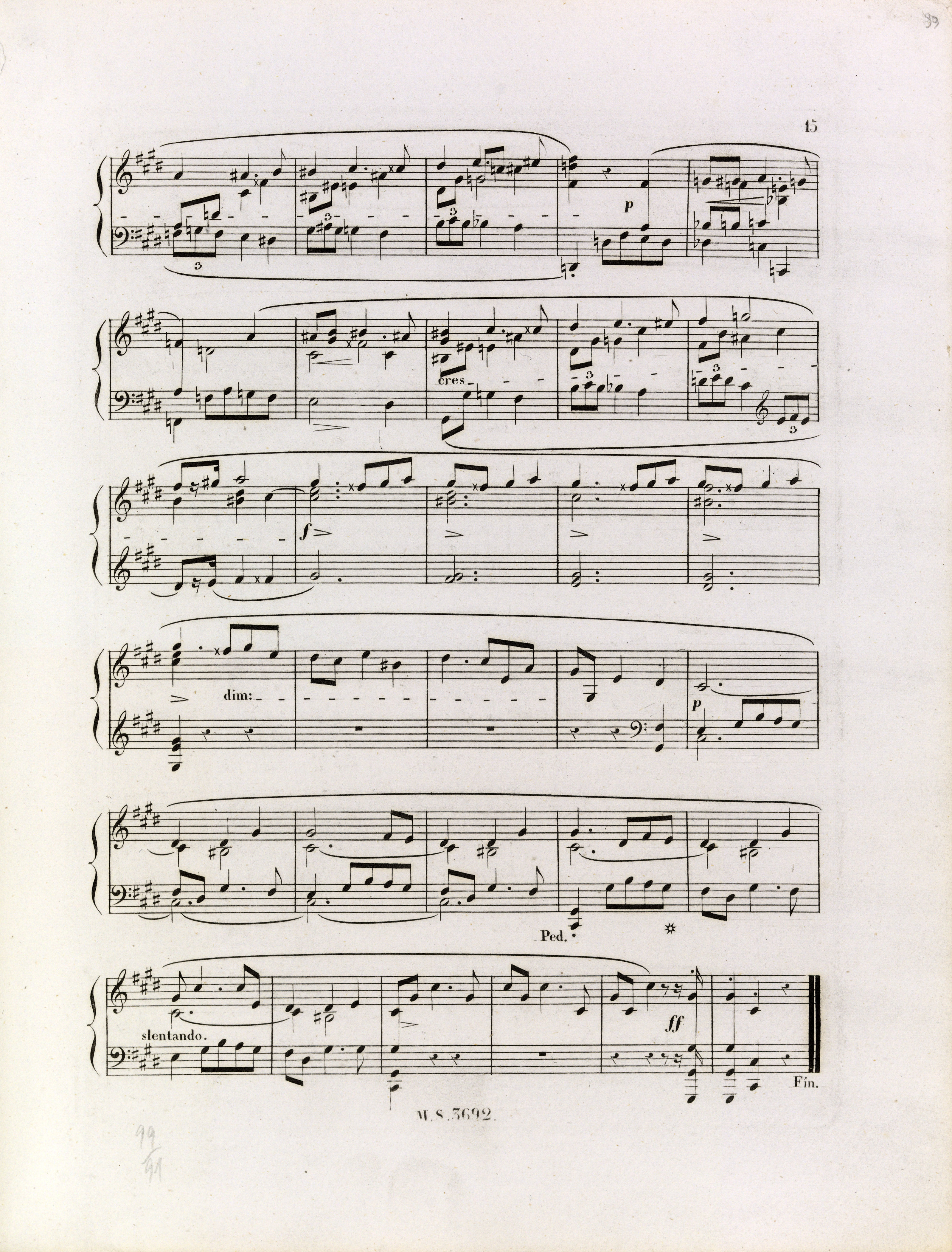



The crossings-out visible in AI allow us to follow the changes the ending of b. 188 and the beginning of b. 189 underwent. They involve transformations of the entire four-bar section spanning b. 185-188, which in the L.H. part was initially an exact repetition of b. 181-184 – there was no C -G
-G fifth at the beginning of b. 185, while the c
fifth at the beginning of b. 185, while the c note was tied twice throughout 4 bars. The following version was written first, which is indicated by the placement of the c
note was tied twice throughout 4 bars. The following version was written first, which is indicated by the placement of the c -e third, i.e. exactly under the 1st R.H. quaver:
-e third, i.e. exactly under the 1st R.H. quaver:  . Chopin then changed the ending of the tenor voice, forgoing a characteristic f
. Chopin then changed the ending of the tenor voice, forgoing a characteristic f -e transition:
-e transition:  . Eventually, the c
. Eventually, the c bass note, held for a long time, was replaced with two C
bass note, held for a long time, was replaced with two C -G
-G fifths played at the beginning of b. 185 and 189, respectively:
fifths played at the beginning of b. 185 and 189, respectively:  . AF (→FE→EE) generally repeated the latter; however, the way it was written down and marked differs slightly from this version:
. AF (→FE→EE) generally repeated the latter; however, the way it was written down and marked differs slightly from this version:
- Chopin transferred the g
 note in b. 189 to the bottom stave, which clearly pointed to this note as continuation of the phrase from the preceding bar,
note in b. 189 to the bottom stave, which clearly pointed to this note as continuation of the phrase from the preceding bar, - he added an accent over this note,
- he omitted the slur combining the g
 quaver in b. 188 with the C
quaver in b. 188 with the C -G
-G fifth.
fifth.
In this situation, the version of GE seems to be an alternative refinement of the version of AI:
- g
 at the beginning of b. 189 was omitted,
at the beginning of b. 189 was omitted, - instead of an accent, Chopin added a three-bar
 hairpin in b. 189-191,
hairpin in b. 189-191, - the slur combining the g
 quaver in b. 188 with the C
quaver in b. 188 with the C -G
-G fifth was preserved, and the fifth provided with a staccato dot.
fifth was preserved, and the fifth provided with a staccato dot.
Taking into account the fact that the performance indications concerning the preceding phrase are more elaborate in GE – L.H. slurs in b. 180-182 and 185-188,  and accent in b. 185 – we believe that it is also in the discussed place that the version of GE is to be regarded as the most mature; therefore, we adopt it in the main text.
and accent in b. 185 – we believe that it is also in the discussed place that the version of GE is to be regarded as the most mature; therefore, we adopt it in the main text.
Compare the passage in the sources »
category imprint: Differences between sources
issues: Accompaniment changes, Main-line changes
notation: Pitch

